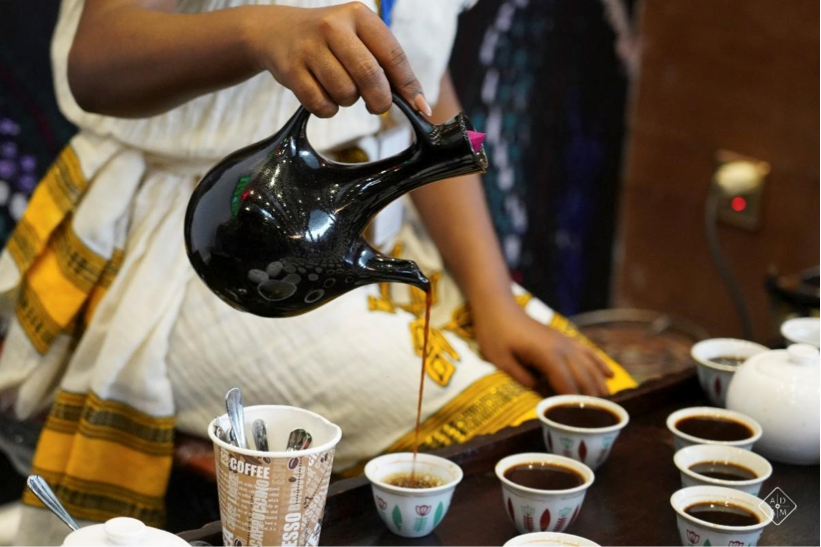 A woman pouring coffee in to the cups using the coffee pot. Photo credit: Adam Mengistu (Instagram: @adam_me_).
A woman pouring coffee in to the cups using the coffee pot. Photo credit: Adam Mengistu (Instagram: @adam_me_).
This 4-letter word is everything to us Ethiopians. Buna, or as it is known “coffee”, is the prized possession of all Habeshas and the coffee ceremony in Ethiopia is like no other. Neighbors, family members, and friends gather around and discuss their day-to-day stories and ask for advice. Even people who don’t favor drinking coffee attend the ceremony and instead drink tea. Yet, the excitement for coffee time echoes in almost every Ethiopian home for generations. This true Ethiopian coffee experience is present everywhere.
It is known that coffee was born in the Kaffa region, Ethiopia. In fact, the word coffee is derived from its place of origin- the word- Kaffa.
It all started with a goat herder named Kaldi who observed that one of his goats was giddy. Kaldi was puzzled. He took a second look and noticed that the goat had consumed an odd-looking berry. He took this odd-looking berry home to his wife and she advised him to show it to the priest. Having heard about the staggering effects of these berries, the priest deemed them as sent from the devil and threw them into a fire. As the beans were getting roasted the intoxicating fume entered their nostrils, no one could resist. The rest is history.
Ethiopia accounts for 5% of the world’s total coffee market; most notably, Coffea arabica species is endemic to Ethiopia and the coffees from certain areas are very unique in flavor and quality all while in high demand globally. Ethiopia is not only the cradle of coffee, but it is the only country in the world with an estimated treasure of more than 10,000 genetically differentiated varieties of this brown gold.
A researcher in 2019, found that 60 percent of 124 wild coffee species are threatened with extinction because of land use change and deforestation, exacerbated by climate change. Wild coffee is vital for the long-term viability of the coffee sector. Therefore, we should give attention to afforestation and plant trees, the wild types at that which are present in the wild-forest and grow naturally on their own.
Coffee grows all over Ethiopia, depending on the places; the coffees harvested are dramatically different- unique to each place. Each region has a distinct coffee variety. The most notable ones are in Harar, Sidamo, Yirgachafe, Limu and Jimma.
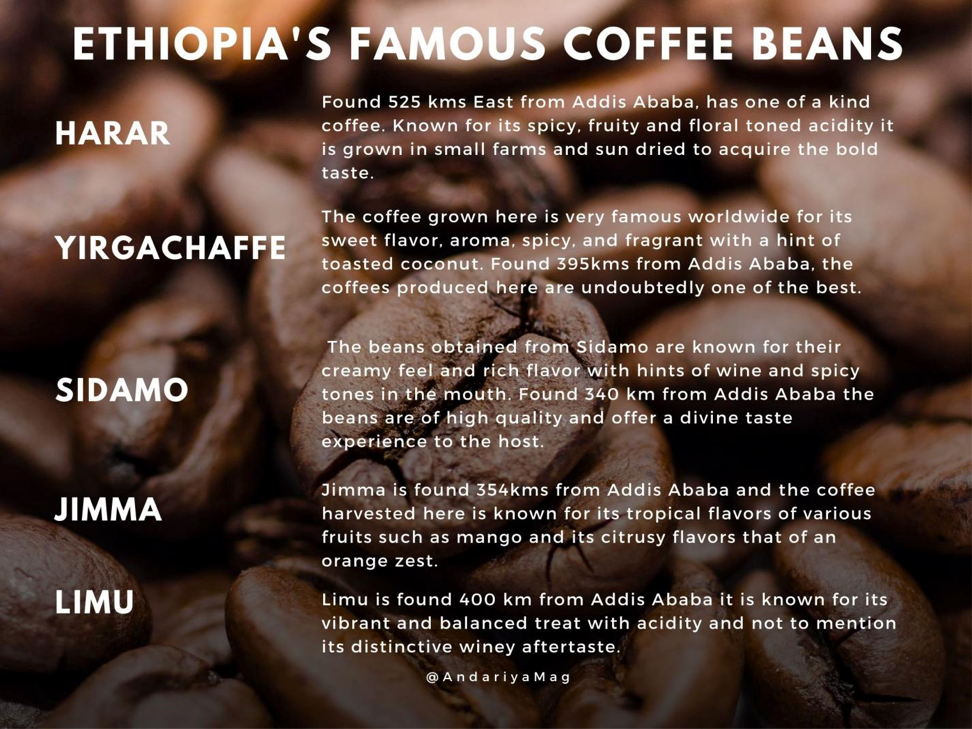
Coffee ceremony has a classic setup. The setup includes a small carpet where the coffee stand will be placed topped with an incense burner made of clay, fresh green beans, and a small pan to roast the green beans in a coffee clay pot named ‘JEBENA’ that is placed over a bed of hot charcoal. When preparing to make coffee, the coffee in the jebena from the previous day is filtered and washed with the ground residue. The oil in the coffee ground gives the jebena a shiny effect and since it is made of clay it tends to be ashy, therefore, washing it with coffee grounds keeps it looking nice. Then it will be rinsed with water and the filtrate will be poured in. Then small demitasse cups along with their holder are laid out on the stand.

Photo credit- Adam Mengistu
The Coffee Setup
After the setup is complete what comes next are the green beans to be roasted to a shiny darkish brown. It’s not that easy to attain the perfect color of the beans. But the first and important rule is to not burn the beans. As soon as the beans are roasted, the roasting pan is passed around for all the people there to take in that intoxicating coffee fume. Some households have ground roasted coffee ready while others ground the freshly roasted coffee beans.

Coffee fumes.
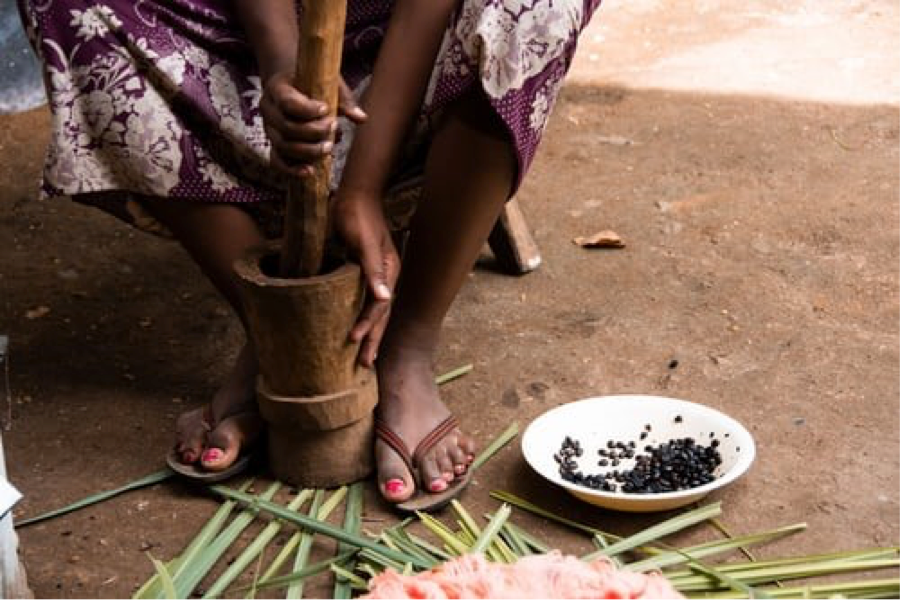
Traditional coffee grinding
Coffee has 3 stages in our ceremony, 1st Abol, 2nd Tona and last but not least the 3rd is Bereka. These stages depend on how strong or black the coffee is. That is Abol being strong and Tona being light. When a visitor at your place arrives while you are making or made the first brew, it shows that you love that person, although unintentional, but considered a friendly gesture. Hot coals will be placed on the clay stands and frankincense is placed on those hot coals. The aromatic smoke fills the air and sets the vibes on.
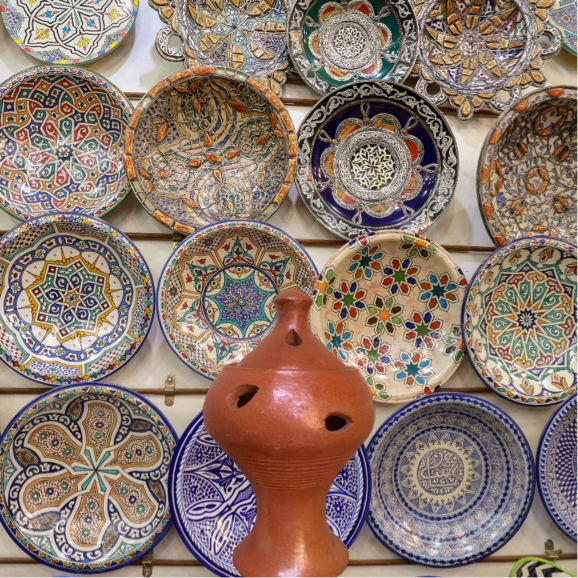 Traditional clay incense burner. Source: Kalkidan Zelalem
Traditional clay incense burner. Source: Kalkidan Zelalem
In Ethiopia coffee is served in several ways in different regions of Ethiopia, it can be served with butter and also it can be served with Rue Tenadam, which aside from its health benefit it is used as an added aroma to coffee. Pieces of these green herbs-of-grace are refreshing and add a kick to the coffee taste.
Ethiopian coffee is often served with light snacks and savory dishes such as popcorn, or specially made emmer wheat containing peanuts it is referred to as ‘Kolo’, thin pancakes covered with chili powder
and butter, if it is fasting season, the pancakes covered with chili powder and oil will be served.
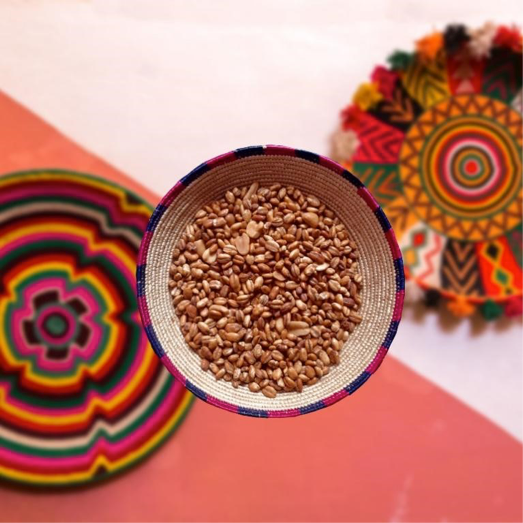 Kollo (Emmer wheat). Source: Kalkidan Zelalem
Kollo (Emmer wheat). Source: Kalkidan Zelalem
Coffee brings people together Ethiopians living abroad desperately try to reminisce the amazing coffee taste and the fragrant frankincense smoke piercing through the air, those shiny, dark brown, foamy bubbles appearing after a coffee is poured in those small cups. They do miss that coffee experience, sharing laughs, eating those thin pancake-like breads or popcorn or anything served, the aroma of the roasted coffee coupled with frankincense, the scent left by the marriage of these smells will make one refreshed. They will forever have that smell and taste of coffee infused with tenadam lingering and try their best to recreate and relive this ritual.
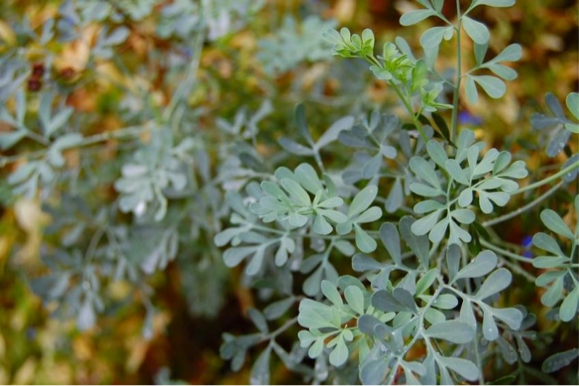 Tenadam (Rue, herb-of-grace). Source: Kalkidan Zelalem
Tenadam (Rue, herb-of-grace). Source: Kalkidan Zelalem
Coffee is at the heart of both Ethiopian culture and economy. It is very vital to pay attention to the aggressive deforestation and land use that erases the wild types slowly, as these wild types are very crucial for the viability of the coffee sector. Having said this, due to COVID-19 restrictions, travelling is limited therefore, in order for you to experience the one of a kind Ethiopian coffee we have set up a shop for you with Ethiopia’s top quality coffee producer- Green Gold. Enjoy!

